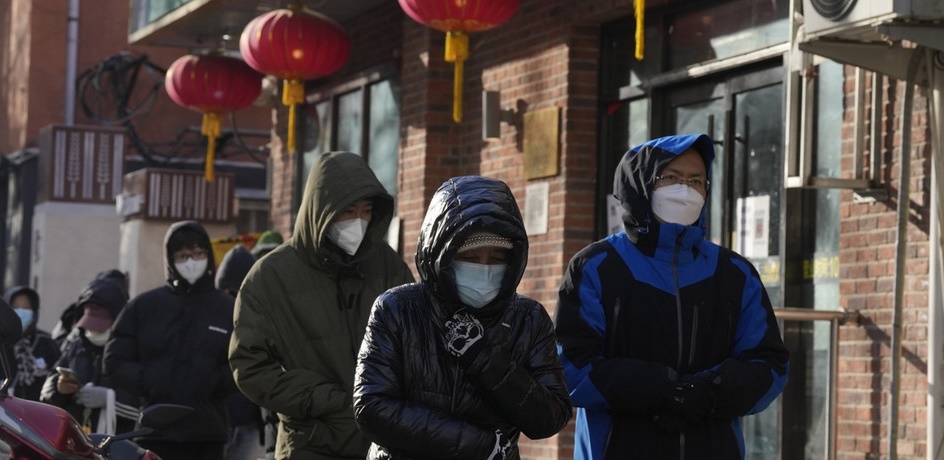After the end of the zero-Covid policy, the first hospitals are overcrowded in China’s capital. While state pages compare the virus variants with flu, fever and quick tests become rare. Virologists expect an infection wave.
Normality is simulated on Chinese state television: more than 9,000 cinemas throughout the country would have reopened. Visitors are pleased that they no longer have to show a PCR test, like this:
“We no longer have to show the COVID 19 test results before entering the cinema. It is so practical for cinema seekers.”
But the cinemas should not be full at the moment. Many people in China are unsettled because of the recent loosening and increasing number of infections. They don’t dare to get out of the house. Or you have covid.
Beijing sometimes looks like extinct
Beijing is the hotspot of the current wave. The virus spreads rapidly in China’s capital. If you are not positive yourself, you usually have many colleagues, acquaintances and relatives who have Corona. That was not in the People’s Republic for almost three years.
Although everything is allowed to open again, Beijing with its more than 20 million inhabitants seems partially as extensive. Whole office floors are swept empty due to covid-19 infections, restaurants are closed because staff are missing, internet orders pile up at the distribution stations because the drivers register with sickness.
Is that just the beginning of the wave?
Fevering pain relievers are often sold out. Thousands of people visit hospitals. In some cases, snakes form in front of the clinics. There are reports from hospitals that are already overloaded.
So far, the very big chaos seems to be missing. But it is only the beginning of the wave. Virologists expect the number of cases to continue to increase significantly in the coming weeks and that the virus spreads quickly across the country. The official number of cases falls paradoxically. There is no longer an overview of the infection, most PCR tests have been closed in the past few weeks. Fast tests are often in short supply, and there is no system to count the cases.
Old people are particularly unvaccinated
China generally has a high vaccination rate, but millions of old people are not sufficiently vaccinated. Only today has China approved a second booster for risk groups and people over the age of 60.
A week ago, the state and party leadership officially abolished most of the covid regulations, surprisingly and largely unprepared, after the strictest Corona rules in the world had been in China for almost three years.
While state media until recently warned of the deadly virus, the narrative is now a completely different one. China’s best-known pandemic expert, the pulmonary doctor Zhong Nanshan, compares the Omikron subtypes prevailing in China with a flu:
“Today, the vast majority of omikron patients suffer from the upper respiratory tract infections, such as cough, sore throat and fever. It is extremely rare that pneumonia occurs and 99 percent of the patients relax in about a week.”
The apps lose importance
The otherwise ubiquitous local covid tracking apps lose their meaning more and more and are often no longer checked. If you still get a PCR test, it often no longer appears in the apps.
The national tracking app was switched off at the beginning of the week. Fears that state and party leadership could continue to use the tracking apps after the end of the zero-covid policy to control people’s movements, have not been true.
End of the quarantine?
After entering in China in the meantime had to go to hotel quartans in several weeks, there are now rumors that it will soon be completely abolished. If you come to China, you only have to isolate yourself at home for three days. According to reports, this is already being handled unofficially at some airports in the country.
Hong Kong has also loosened its Corona rules in the course of events in the country: As of today, you no longer have to scan yourself in the Chinese special administration region with the Corona tracking app. In addition, all restrictions for entrants who can have a negative test fall.

 Victory for the left-wing party in Sri Lanka
Victory for the left-wing party in Sri Lanka China presents new fighter jet J-35
China presents new fighter jet J-35 North Korea tests suspected intercontinental missile
North Korea tests suspected intercontinental missile International Criminal Court: Mongolia ignored Putin’s arrest warrant during visit
International Criminal Court: Mongolia ignored Putin’s arrest warrant during visit